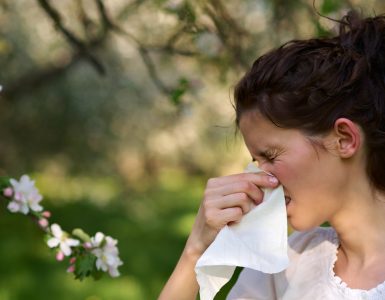Typically, mosquitoes are nothing more than a nuisance, inviting themselves to your summer outings and leaving you with bites that itch for days. However, these annoying insects also have the potential to make you very sick, because mosquitoes may carry diseases like West Nile virus that they can pass onto you through their bites.
In fact, since 1999, almost 40,000 people across the United States have contracted West Nile virus. While most people never show any symptoms, others may develop flu-like symptoms or a rash that could become serious, especially those over the age of 50 or with pre-existing conditions. For more information on symptoms of West Nile virus, visit the Centers for Disease Control and Prevention’s website.
The best way to protect yourself and your loved ones is by avoiding mosquito bites. Below are a few tips and recommendations to help prevent bites and avoid contracting West Nile virus:
Be Aware
West Nile virus has been reported in every state except Alaska and Hawaii. While some states have had higher incidence levels than others in recent years, including Oklahoma, Colorado, Nebraska, Montana and surrounding areas, this can change each year, so it’s important to be vigilant no matter where you live or visit. To view the CDC’s map of incidence by state in 2013, click here.
Be Prepared
Because West Nile virus can happen anywhere and to anyone, it’s critical to take steps to prevent bites from mosquitoes that may carry the disease. Here are a few tips to consider:
- Mosquitoes tend to be most active between dusk and dawn, so try to reduce the time you spend outside during these periods.
- When working or spending time outdoors (especially during the hours when mosquitoes are typically biting), try wearing long sleeves, pants and socks to reduce your risk of being bitten.
- Use bug spray on any exposed skin and on your clothing to make yourself less attractive to mosquitoes. To find the best repellant for you, check out this tool from the Environmental Protection Agency (EPA) to search registered repellants. The EPA and CDC recommend repellants that list any of the following as active ingredients – DEET, picaridin, IR3535 or plant-based oil of lemon eucalyptus. For additional information on recommended repellants, visit the CDC’s website.
- Use citronella candles to help repel mosquitoes and other bugs.
Oftentimes, your county or city government’s health department will have a program to help control the local mosquito population and reduce your risk of contracting diseases like West Nile virus. Reach out to your local government to find out more about how mosquitoes are being controlled in your area.
For Health Advocate Members
If you’re a Health Advocate member and have more questions about risks and symptoms of West Nile virus, contact your Personal Health Advocate to find a physician in your area who can help you learn more.



